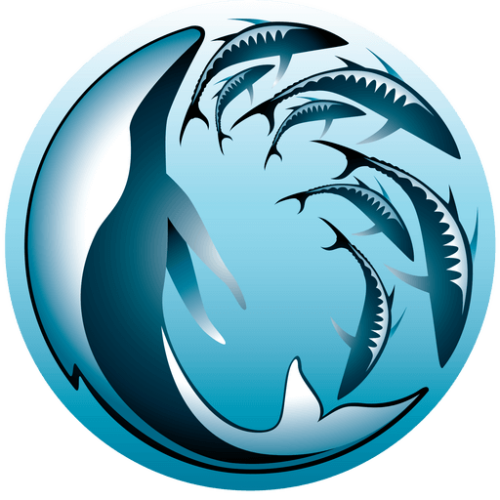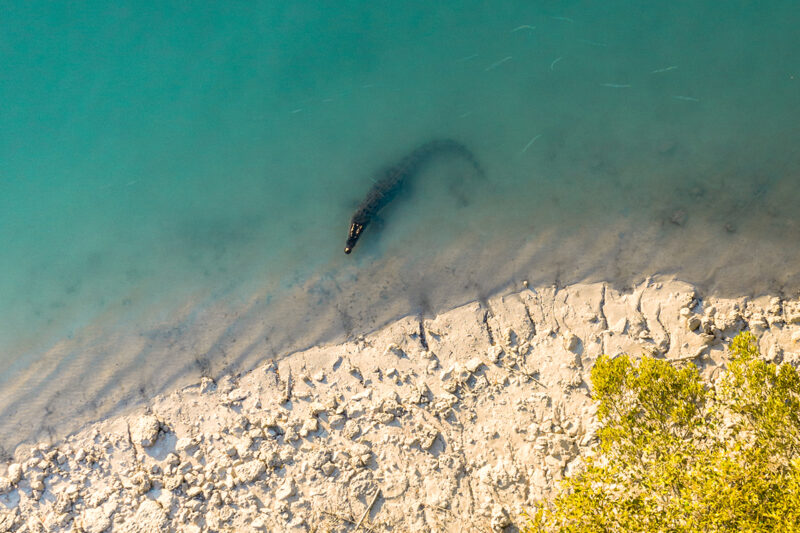Broome is a popular holiday destination in the Kimberley region of Western Australia, famous for its white sand beaches and tropical climate. But while the water can look very inviting, due to its location at the north of Australia you may be wondering – are there crocodiles in Broome?
In short, the answer is yes. Crocodile sightings can occur all around the Kimberley region. However, they might not be as common as you think. Take a look at all the things you need to know about crocodiles in Broome, to ensure you and your family can enjoy a safe and relaxing trip at this stunning holiday destination.
Where do croc sightings occur?
If you want to go swimming in Broome, it’s likely you hope to hit up the world-renowned Cable Beach or one of the other beaches such as Town Beach at Roebuck Bay. Crocodiles are very rarely sighted at the beaches in Broome, simply because a beach is not the most inviting habitat for a croc. They much prefer mangroves, creeks and estuaries – murky, deeper waters in which they can hide. The crocodiles of Broome usually stick to inland waterways.
That being said, the very occasional croc sighting at a beach will occur – but as a general rule, the further from a mangrove or similar habitat, the less likely you are to spot a crocodile. Cable Beach itself is 22km long, so generally considered very safe from crocodiles.
If a croc is sighted in an area frequented by tourists – such as Cable Beach – steps will be taken to alert people that there’s a croc in the area, including closing the beach. Crocodiles will generally be removed from populated areas.
While croc sightings around Broome beaches may be rare, with growing crocodile populations there has been an increase in encounters. However, crocodiles are usually more active during the wet season (November to April), and as we’ll see, crocodiles are not the only reason that caution is needed before swimming during the wet season.
Types of crocs
There are two types of crocodiles found in Broome – the saltwater crocodile and the freshwater crocodile. Whenever there are croc warnings, it almost always refers to the saltwater crocodile.
Saltwater crocodiles are the largest crocodiles in the world and can grow up to 6 metres in length. The name ‘saltwater crocodile’ is somewhat of a misnomer, as they can also be found in freshwater. They have broad, strong jaws and are aggressive towards humans. Each male saltwater crocodile needs his own territory, as they are extremely territorial.
Freshwater crocodiles are a lot smaller than saltwater crocs, with thinner and longer snouts. They are found in freshwater habitats, and are not as aggressive. That being said, freshwater crocodiles are still wild animals, so caution should be taken in the presence of a freshwater croc.
Safe swimming in Broome
Keep a watchful eye out for crocodile warning signs which may be displayed in areas known to be inhabited by crocodiles. However, no sign does not necessarily mean no crocodiles. It’s always best to ask a local if you’re unsure if an area is safe for swimming, or if in doubt, avoid it. Remember, crocs are effective at hiding and remaining under water for quite some time. Just because you can’t see them, doesn’t mean they aren’t there.
As a tourist, the best course of action is to stick with swimming at populated beaches. Cable Beach has lifeguards on duty during the tourist season for additional peace of mind, making it one of the best places to swim.
During the wet season (November to April) the beaches are inhabited with stingers, so it’s safest to stay out of the water or take proper precautions including wearing stinger suits and speaking with beach authorities.
Seeing the crocs
If you want to see crocodiles on your visit to Broome, plan a trip to Malcolm Douglas Crocodile Park where you can get up close to huge saltwater crocodiles, freshwater crocs, American alligators and other reptiles. The Malcolm Douglas tours and daily feeding presentations are engaging and family-friendly, and a great way to see the crocodiles in a safe and controlled environment.
Enjoy the water
Don’t let the idea of crocs put you off enjoying the water in and around Broome! As mentioned, swimming at Cable Beach and other Broome beaches during the dry season (May to October) is quite safe, and it’s rare for a crocodile to be spotted at a beach.
If you’re still apprehensive, or if you’re looking for another way to get out there and enjoy the water around Broome, check out our whale watching charters. Our family-friendly tours offer a unique experience to get up close and personal with the majestic humpback whales, and you’re likely to spot other beautiful marine life such as Snubfin dolphins and sea turtles.
As with most of the Kimberely region, crocodiles do inhabit parts of Broome. However, if you follow advice from the local authorities, swim at the beaches and swim during the dry season, you don’t need to worry too much about possible crocodile encounters. Remain vigilant as you always would near waterways, and remember you’re in their habitat. For a stress-free, memorable experience out on Broome’s waters, book in for a whale watching cruise with the friendly team here at Absolute Ocean Charters.









